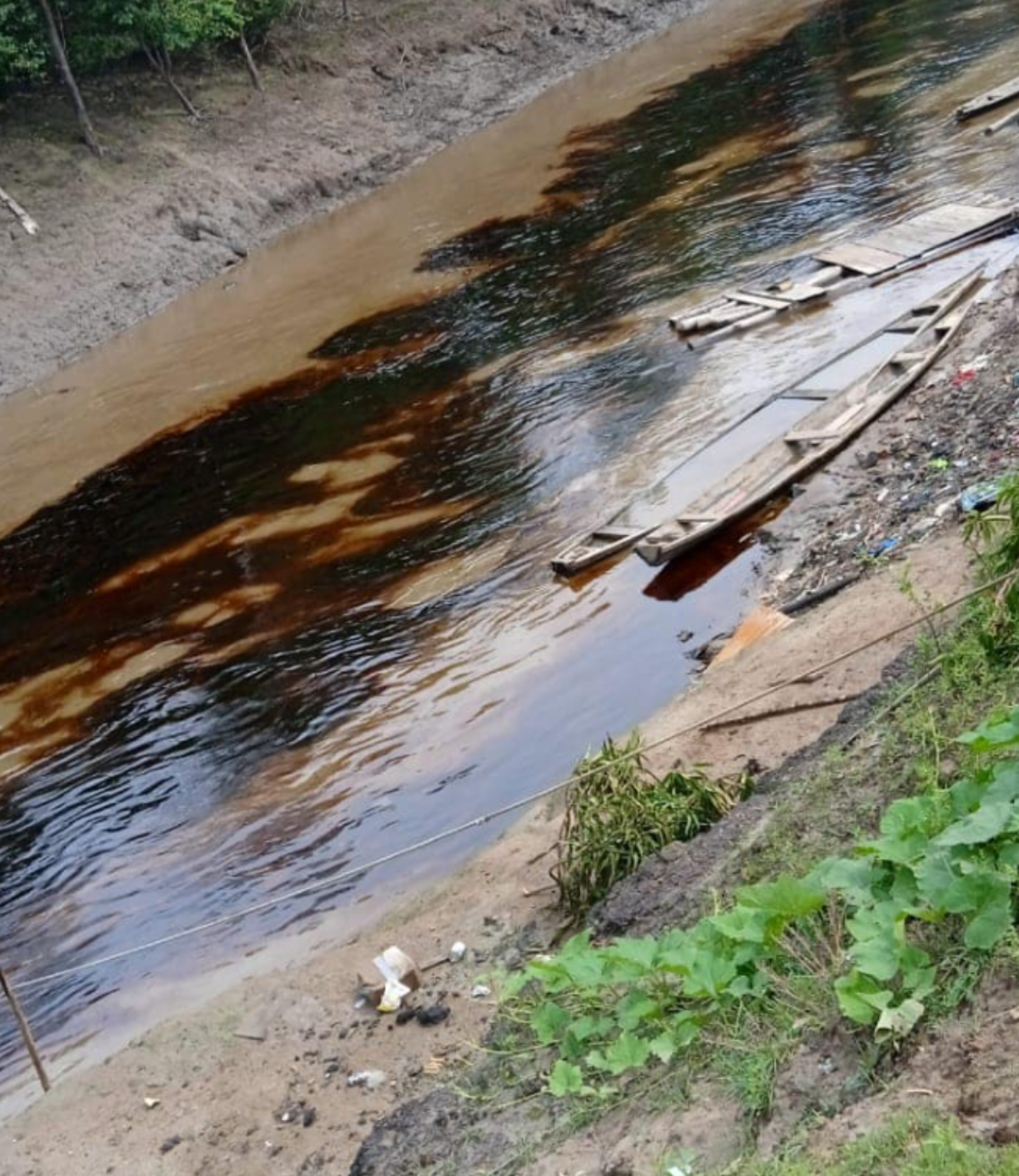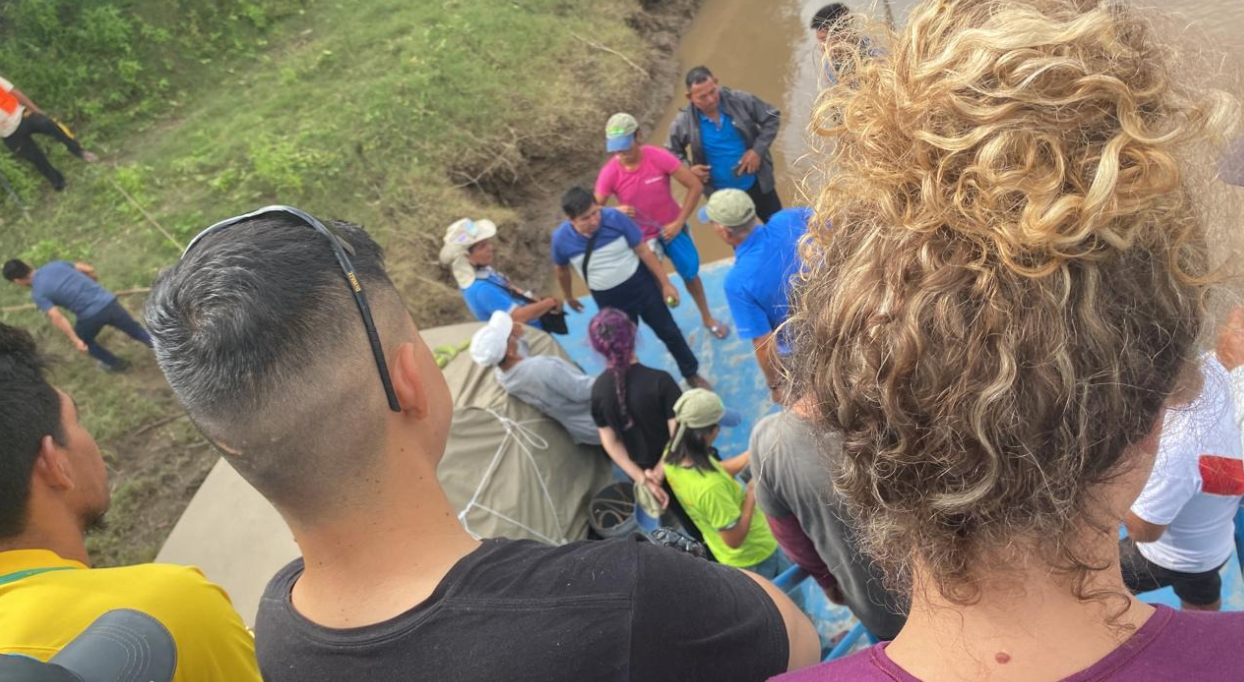
An Indigenous group in Peru held a group of 250 people hostage for more than 24 hours before releasing them on Friday.
Cuninico locals said they took the extreme measure to detain the large group, which included UK and US nationals, after more than 40 oil spills in the area. Pregnant women, a one-month-old baby and elderly people were reportedly among those held hostage.
“Our very punctual request is that the government declares a state of emergency due to the constant oil spills in our territory, and a committee presided by the president is then commissioned,” community leader Wadson Trujillo told national outlet TVPeru Noticias.
The US Department of Justice said in a statement to ABC that the situation has since been resolved. A total of 248 people, including 228 Peruvian citizens, were held while they were on a riverboat for more than 24 hours, the DoJ said.
According to El Pais, more than 6,000 people use the water affected by the oil spills in Cuninico and neighbouring communities. Indigenous leaders have denounced the dire situation in their communities after oil spills have affected their access to clean water and food.
They’ve also decried the government’s lack of assistance and disregard for their pleas.
Angela Ramirez, a local who claimed to have been detained by the indigenous group, had written on social media that there were infants among the hostages.
Ms Ramirez said that the leaders who had detained them were kind and respectful and that the soonest “the government answered to their request, the faster the group would be released.”

“We spent the night here. We are running out of water to drink, the sun is very strong, there are babies crying, the youngest is only one month old, pregnant women, disabled people, and elderly,” Ms Ramirez said on Facebook. “Now we do not have electricity to charge our phones, nor water to clean ourselves.”
Former Peruvian Prime Minister Anibal Torres hit out at local media for reporting that the government was not actively assisting the hostages and went as far as claiming that some members of the Cuninico community were to blame for the spill of about 2,500 barrels of oil, which have killed at least three locals.
Cuninico leaders decried Mr Torres’ remarks. The fact-checking watchdog Convoca Verifica concluded that Mr Torres’ claims are unfounded.
The BBC reports that a small number of British nationals were in the detained group.
“We have started to run out of food and water. We’re doing okayish but we’re concerned for the pregnant females we have on board, the diabetics, the children, the elderly and the other ill people so we’re starting to get quite desperate,” Charlotte Wiltshire told the network.
“We are a little concerned that our boat has been now moved closer to the village but I understand that gives us a little more easy access to possible supplies later.”
Leaders have previously blocked access to rivers and travelled to the capital to protest the government.
The spills were caused by Peru’s longest pipeline, Norperuano., operated by PetroPeru. The government declared a 90-day state of emergency in late September after the spills in Cuninico and Urarinas, but no agreements were made with locals.
El Pais reports that, according to a 2020 report by the non-profit Oxfam, 65 per cent of the oil spills were caused due to faulty infrastructure and lack of maintenance, while 23 per cent were the result of purposeful cuts to the pipelines by people who have created businesses dedicated to cleaning the spills.
Most recently, four oil spills in Peru’s Amazon forest have affected Cuninico and more than two other dozen indigenous communities with 6,000 people whose access to food and clean water has been deeply affected by the emergency.
On 16 September, the spill of about 2,500 barrels of oil in Cuninico contaminated nearly 850,000 square feet of water in the area. The spill also affected 17 other villages that depend on the Marañón river and nearby bodies of water that were also affected.
Following a previous oil spill in 2014, the government installed an emergency water pump station in Cuninico that would supply the community for 30 minutes each day, El Pais reported. However, locals later complained that the water available was being pumped from contaminated rivers.
Construction of another pump station in a neighbouring locality was reportedly abandoned amid an investigation into misused funds. Meanwhile, local leaders say that PetroPeru, the state-owned petroleum company, only assisted 200 of the 272 families a week after the spill and has not communicated with them since.
Neighbouring local governments in the municipalities of Loreto and Urarinas have also been accused of doing a poor job of ensuring that families have clean water.
Mr Trujillo has also denounced the government for not seeking to monitor or offer resources to those directly affected by the environmental agency in Cuninico, where ill locals only have access to one pop-up medical clinic that consists of two nurses and a health technician.
“Eighty per cent of our community is experiencing allergies, headaches, fever,” Mr Trujillo told El Pais. “Since the first day after the spill, all our activities had to be stopped. We don’t have food or water, it’s an emergency and I wouldn’t wish this upon anybody.”
The leader of the indigenous Chapra territory, where another spill took place on 10 September, told El Pais that the pipelines were supposed to be changed thirty years after they were installed more than five decades ago, but that never happened. She said the oil has now reached rivers where the community fish and obtain their food.
“We have breakfast, lunch and dinner from what nature offers. Traditional fishing and agriculture is our main source of income,” Lima Olivia Bisa told the outlet. “We survived during the pandemic only because we were able to sell fish to companies such as PetroPeru.”
Two other spills on 21 and 22 September affected the communities of Shiviyacu and Wawiko, respectively.







